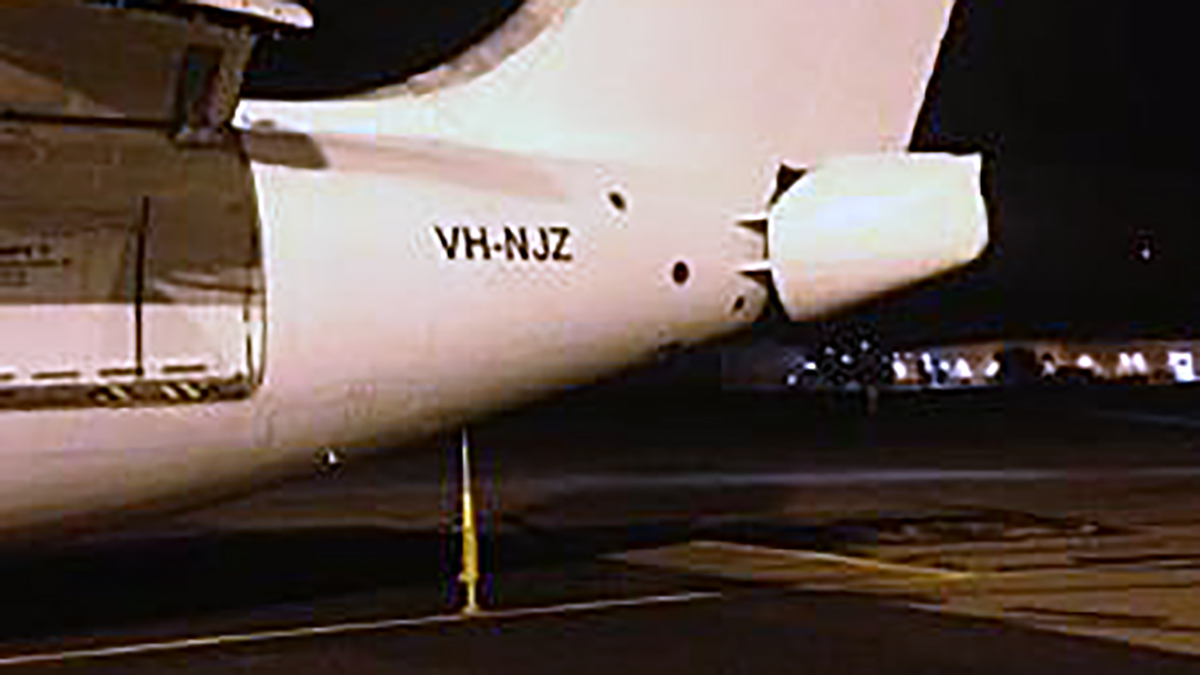
Checklists are essential for overcoming memory limitations and ensuring actions items are completed, an ATSB investigation into an incident where a tail strut was not detached from a BAe 146 freighter aircraft prior to take-off highlights.
The Cobham Aviation Services British Aerospace 146-300 had landed in Sydney in the early morning of 22 January 2019 while en route from Melbourne to Brisbane, conducting a scheduled night freight operation. The tail strut, which prevents the aircraft from tipping onto its rear fuselage during loading operations, was attached to the rear of the aircraft before cargo unloading and loading commenced.
Although confirmation of the tail strut’s removal prior to departure was a checklist item prior to engine start, the aircraft taxied for departure to Brisbane with the tail strut still attached. As it taxied, a ground crew member saw that the tail strut was still attached, however, a number of attempts to contact the flight crew were unsuccessful and the aircraft turned onto the runway and departed.
As a consequence the tail strut detached from the aircraft during the take-off roll and fell onto the runway. A subsequent runway inspection recovered the tail strut, and the aircraft continued to Brisbane and landed without further incident.
The ATSB’s investigation into the incident found that pre-departure checklist items, required to be performed by the aircraft captain and the ground engineer in a challenge-and-response manner, were not completed. This negated the value of the checklist as a risk control, and resulted in a missed opportunity to detect the tail strut’s presence prior to departure.
The ATSB also found that the engineer performing the aircraft turn-around had no effective means or procedure to contact the aircraft while it was taxiing.
In response to the incident, the operator undertook a number of actions including issuing a safety alert to relevant staff highlighting the despatch procedure, including the challenge-and-response requirement for the relevant cockpit to ground checklist.
This investigation’s safety message highlights checklists are an essential tool for overcoming memory limitations, and ensuring that action items are completed in sequence and without omission.
The ATSB notes that while, the value of checklists may not be obvious for routinely-performed tasks, the incomplete use of checklists has often been cited as a factor in previous aircraft accidents.
Read the report: Aircraft preparation occurrence involving BAe 146 300, VH-NJZ, Sydney Airport, New South Wales, on 22 January 2019


